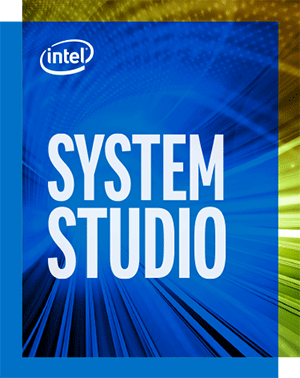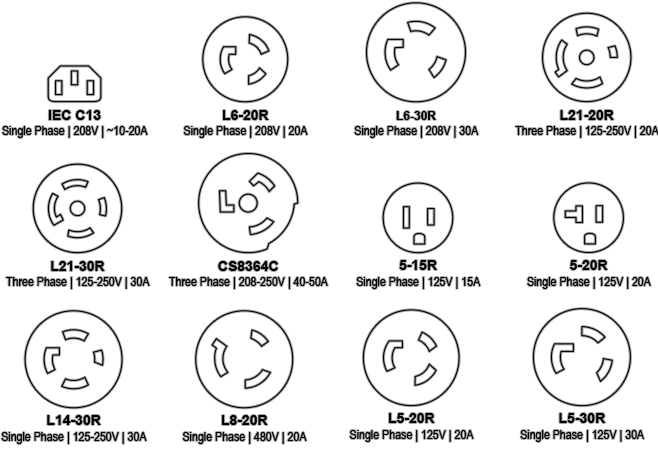HPC COMPILERS
Researchers often write, or use software that is made available to them through commercial, academic, or the open source community. Different HPC compilers allow the coder to make use of these tools for better performance and capability. For instance, using HPC compilers allow for easier coding to run a parallel job, and CUDA is widely used to run on NVIDIA GPUs. Below are some of the HPC compilers that are frequently requested by Aspen Systems’ customers, and we have experience using all of them. In fact, if you have a commonly used scientific code that you’d like compiled on your cluster, chances are our engineers can help.
LEADERSHIP APPLICATION PERFORMANCE FROM INTEL
If you are here, you are looking for ways to make your application run faster. Boost performance by augmenting your development process with the Intel C++ Compiler. The Intel C++ Compiler plugs right into popular development environments like Visual Studio, Eclipse, XCode and Android Studio. The Intel C++ Compiler is compatible with popular compilers including Visual C++ (Windows) and GCC (Linux, OS X and Android).
- Boost C++ application performance
- Future-proof code by making code that scales
- Plugs right into your development environment
INTEL PARALLEL STUDIO XE
As part of our ongoing effort to bring you the best-in-class HPC applications and solution, we’ve partnered with Intel to help you increase your application performance for today and tomorrow’s next generation processors. Do you need to improve the performance of your C++ and Fortran applications? With the Intel Parallel Studio XE, you can create and deploy your code faster than ever before by utilizing a one-of-a-kind toolset that simplifies reliable parallel code creation.
With the Intel Parallel Studio you can deliver more reliable applications, eliminate bottlenecks in code, and optimize serial and parallel performance. You can also boost the performance of your application with the built-in Intel C++ Compiler and Intel Fortran Compiler for Windows, Linux, and OS X. Additionally, with the Intel Parallel Studio, you can also find the greatest parallel performance potential and identify critical issues quickly and efficiently.
INTEL SYSTEM STUDIO
Boost the speed of embedded and systems applications by incorporating the Intel System Studio C++ Compiler. It provides industry leading performance while simplifying building code that that takes advantage of increasing core count in modern processors. It’s a drop-in addition for C and C++ development and has broad support for current and previous C and C++ standards with full C++11 and most C99 support.
Boost Embedded Application Performance
- Robust C and C++ compiler to efficiently implement high-level, task-based parallelism and vectorization for data-parallelism
- Compatible with multiple compilers and portable to many operating systems

INTEL BI-ENDIAN COMPILER
The Intel Bi-Endian C++ Compiler is a productivity tool for developers who want to migrate applications from legacy, big-endian computer systems to computer systems based on the Intel Architecture.
- Get faster time to value, such as faster time to profit or faster time to organizational use of a modern, Intel-based solution
- Overcome legacy platform lock-in due to big-endian software dependencies
- Deliver outstanding application performance

Additional Tools and Libraries
 |
 |
 |
 |
 |
|---|---|---|---|---|
| Intel Distribution for Python | Intel Inspector | Intel Advisor | Intel VTune Amplifier | Intel Trace Analyzer and Collector |
| Intel Distribution for Python, powered by Anaconda, gives you ready access to tools and techniques for high performance to supercharge all your Python applications on modern Intel platforms. | Intel Inspector is an easy-to-use memory and threading error debugger for C, C++ and Fortran applications that run on Windows and Linux. No special compilers or builds are required. Just use a normal debug or production build. | On modern processors, it is becoming crucial to both vectorize (use AVX or SIMD instructions) and thread software to realize the full performance potential of the processor. | Performance on modern processors requires much more than optimizing single thread performance. With Intel VTune Amplifier, you get advanced profiling capabilities with a single, friendly analysis interface. | Intel Trace Analyzer and Collector is a graphical tool for understanding MPI application behavior, quickly finding bottlenecks, improving correctness and achieving high performance for parallel cluster applications. |
 |
 |
 |
 |
 |
| Internal Math Kernel Library | Intel Data Analytics Acceleration Library | Intel Integrated Performance Primitives Library | Rogue Wave IMSL Fortran Numerical Library | Intel MPI Library |
| Intel Math Kernel Library (Intel MKL) accelerates math processing and neural network routines that increase application performance and reduce development time. | The Intel Data Analytics Acceleration Library (Intel DAAL) is designed to help software developers reduce the time it takes to develop their applications and provide them with improved performance. | Intel Integrated Performance Primitives (Intel IPP) offers developers high-quality, production-ready, low-level building blocks for image processing, signal processing, and data processing applications. | The IMSL Fortran Numerical Library is the standard for high performance computing commercial mathematics and statistics libraries. With over 1000 algorithms, the library is the most comprehensive available. | Intel MPI Library focuses on making applications perform better on Intel architecture-based clusters — implementing the high-performance MPI-3.1 standard on multiple fabrics. |
CUDA PARALLEL COMPUTING PLATFORM
CUDA is a parallel computing platform and programming model invented by NVIDIA. It enables dramatic increases in computing performance by harnessing the power of the graphics processing unit (GPU). With millions of CUDA-enabled GPUs sold to date, software developers, scientists, and researchers are finding broad-ranging uses for GPU computing with CUDA.
CUDA allows software developers and software engineers to use a CUDA-enabled Graphics Processing Unit (GPU) for general-purpose processing – an approach known as GPGPU. The CUDA platform is a software layer that gives direct access to the GPU’s virtual instruction set and parallel computational elements, for the execution of compute kernels.

SOLUTIONS FOR HIGH-PERFORMANCE APPLICATIONS
Aspen Systems has partnered with PGI to bring you their best-in-class cross-platform compiler for optimizing the code of your demanding HPC applications. Do you need to optimize the performance of your Fortran, C, and C++ code across all the different processors? With the PGI Unified Binary technology, you can simplify cross-platform code performance by combining code sequences optimized for multi-core x64 processor families from Intel and AMD, and GPU accelerators from NVIDIA. PGI is the top choice among many popular performance-critical applications used in the fields of engineering, weather forecasting, geophysical modeling, computational chemistry, physics, and many more.

GNU COMPILER COLLECTION
The GNU Compiler Collection (GCC) is a compiler system produced by the GNU Project supporting various programming languages. GCC is a key component of the GNU toolchain. The Free Software Foundation (FSF) distributes GCC under the GNU General Public License (GNU GPL). GCC has played an important role in the growth of free software, as both a tool and an example.
As well as being the official compiler of the GNU operating system, GCC has been adopted as the standard compiler by many other modern Unix-like computer operating systems, including Linux and the BSD family, although FreeBSD and OS X have moved to the LLVM system. Versions are also available for Microsoft Windows and other operating systems; GCC can compile code for Android and iOS.

 Cooling
Cooling